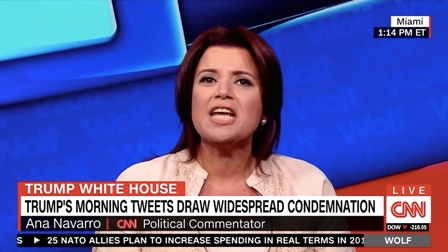
There is a critical issue that the fate of a candidate depends on. If we were presidential candidates, we would have our strengths and weaknesses. There would be negative issues that we could probably get away with and there would be issues that if became public, we would have a hard time convincing people about them. In the last election of the US president, Mr. Trump faced major verbal confrontations with certain section of the media, significantly the CNN.
How did Trump and his campaign react to these opponent media and CNN in particular? Two different stands toward media and the roll of the media and the media’s audience and actually the circulation of the power between them can be analyzed.
Based on the first idea, we believe that media have the power to set what people pay attention to. In this approach media may not be all powerful in forcing people to think in a specific way, but they can at least tell people what to think about. In this case, we believe that media tell people what to think about, and if it’s true, the most powerful media would tell us how and based on what we should evaluate a presidential candidate.
The second approach recognizes a similar power for the audiences. They can also choose. And they do choose what media to read or watch or listen to. Therefore, people are not totally passive in choosing what to think about. They choose what media to pay attention to, and the media tell them what they should consider to be important. It reminds us that the people are not passive listeners to what powerful media tell them. They have a big power, which is ignored in the first approach. According to the second idea and also many other studies in the field of media and psychology, in many cases people make a decision and then look for evidence for it, rather than considering all existing evidence to make a decision.
Two approaches could have been taken by Mr. Trump regarding the media. First, he could simply ignore what media tried to tell people about and only talk about what he thinks that he must talk. The second approach that could have been taken by him was to react to every agenda that media tries to talk about. A presidential campaign plan that is based on the idea that the audiences pick the media that complies with their existing opinions is very different from a plan that is based on the idea that powerful media rule the minds of people and tell them what on which criteria people should evaluate the candidates. If the audience cherry pick the media and its content based on their existing tendencies, then probably a candidate is not forced to react to any negative point made by an opponent media.
Suppose Mr. Trump was accused of mistreating women. Should he immediately respond to make sure his supporters would not be disappointed? If he or his advisors believe that many of his supporters are not even exposed to the negative material, then maybe he shouldn’t do that. In fact, raising the issue by him can backfire, because many of his supporters who don’t follow opposing media may learn about the issue from his reaction for the first time.
Which strategy was closer to that of Mr. Trump? Did he mainly try to address what he was accused of?
Trump won the election, so he didn’t make a fatally wrong decision regarding such a critical issue. For this reason, it would worth the effort to investigate his strategy in this regard. In order to see whether the Trump campaign mainly reacted to or ignored the accusations issued against him, I looked at the messages published by Trump on his Twitter account on one hand, and the CNN that was clearly one of the most serious opponents of Trump's presidency and continues to be one. The examination of the themes shows that Trump ignored many of the accusations such as those calling him inexperienced, racist, etc. Mistreating women is the only theme to which trump repeatedly reacted. He both defended his behavior toward women and apologized for it.
The results also show that Mr. Trump did not react to most of the accusations and attacks by the CNN either. He apparently thought that ignore and speak is a better strategy. There was an exception to this rule: Trump’s treatment of women. He did address that issue frequently and tried to justify himself and apologize for it. There seems to be a rather reasonable explanation. Among many allegations and attacks against Mr. Trump, his treatment of woman was probably one that was publicized the most. Even media that leaned toward supporting Trump, broadcast material regarding his mistreatment of women.
If one intends to use Trump’s presidential campaign to extract lessons for similar campaigns, maybe this is a rule that Trump followed: ignore accusations, keep attacking, and answer accusations only if they are already known to too many people. In other words, react only to the accusations that are already public information and are not limited to the audience of specific media.
Author: Zahra Emamzadeh
PhD Candidate in Media and Communication, University of Canterbury, New Zealand.
Editor: Touraj Shiralilou
**1377
www.irna.ir
 solhkhabar | Peace International News Agency Peace International News Agency , Peace News , International Agency News of Peace
solhkhabar | Peace International News Agency Peace International News Agency , Peace News , International Agency News of Peace